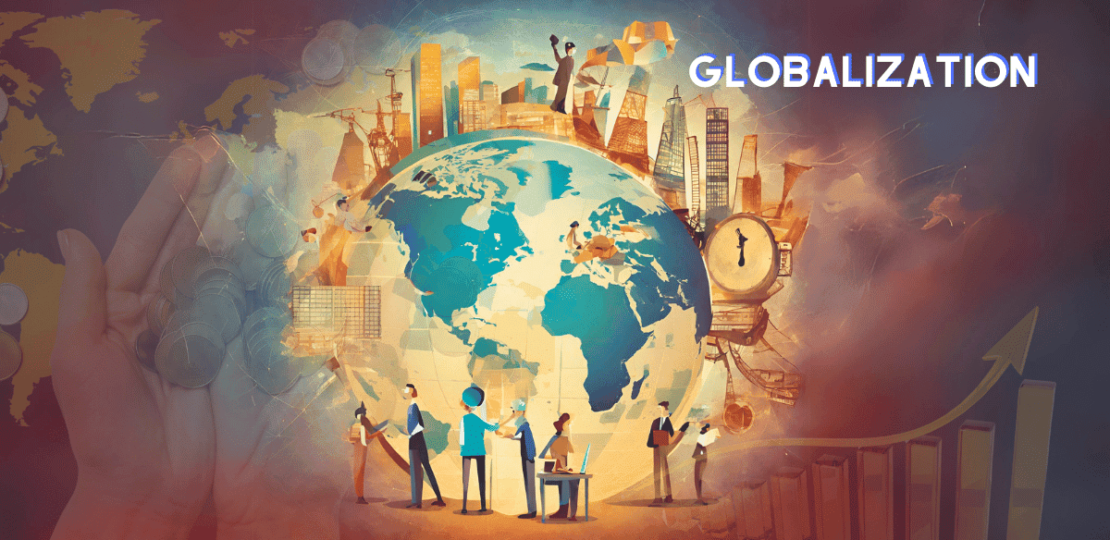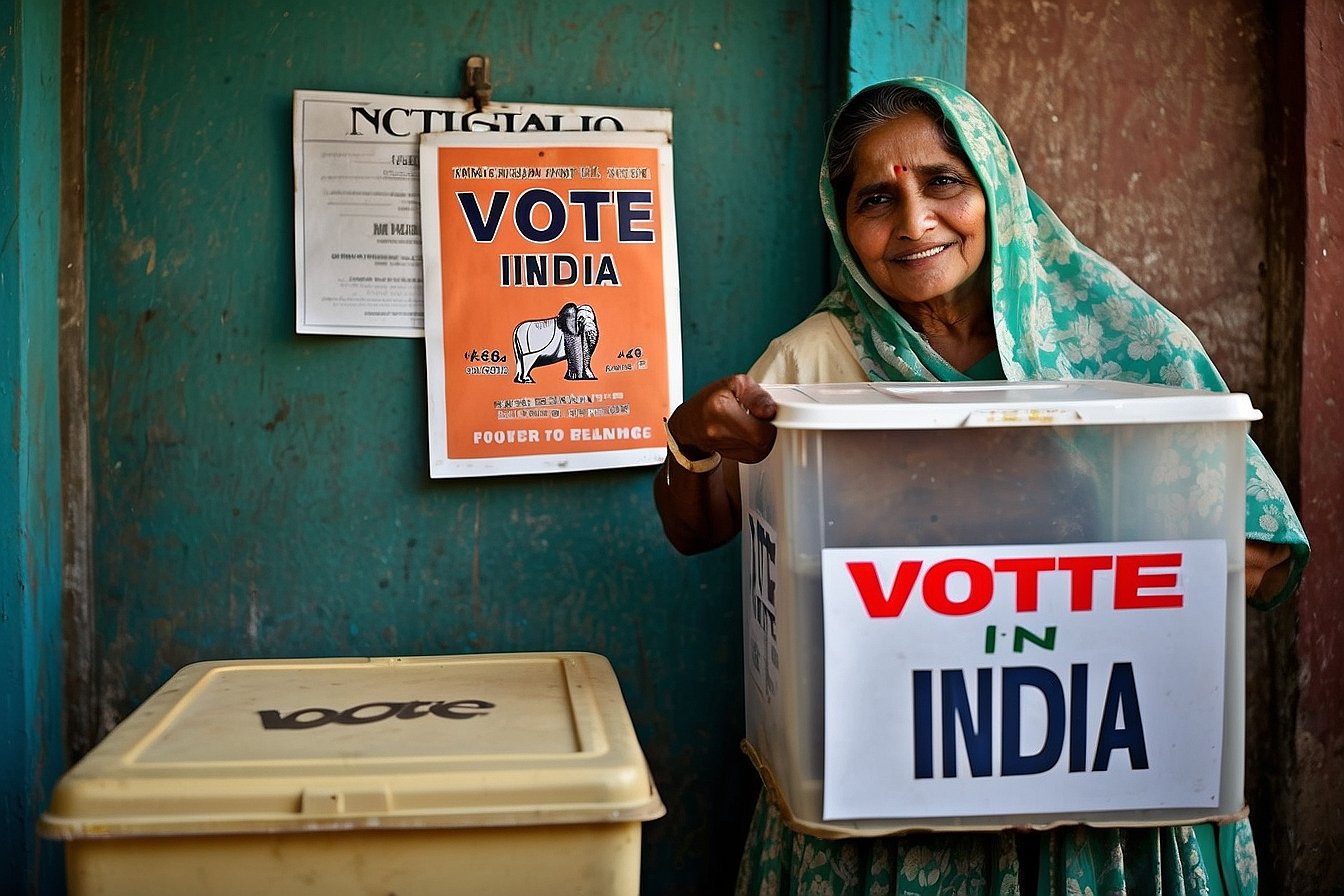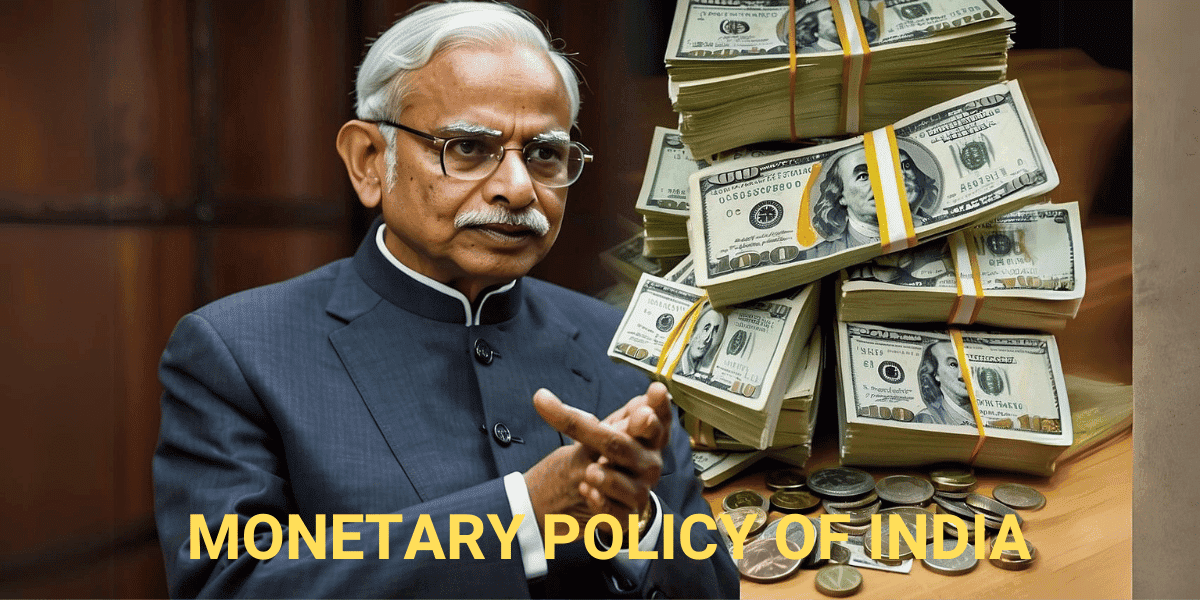Globalization is the exchange of goods, services, capital, technology, information, ideas, and people on a global scale. Globalization is driven by various factors, including advancements in technology, transportation, communication, and international trade.
Thus, it refers to the process of increased interconnectedness and interdependence among countries, economies, societies, and cultures across the world.
Key Aspects Of Globalization Include:
1. Trade and Investment:
Globalization has facilitated the growth of international trade and investment by reducing barriers such as tariffs, quotas, and regulations. This has led to the expansion of multinational corporations, the contribution of global supply chains, and the movement of capital across borders.
2. Technology and Communication:
Advances in technology, particularly in telecommunications and the internet, have transformed how people communicate, conduct business, and access information worldwide. This has enabled greater connectivity and business across geographic boundaries.
Also Read: Monetary Policy In India
3. Cultural Exchange:
Globalization has led to increased cultural exchange and the spread of ideas, values, languages, and traditions across different societies. This includes the global exploration of music, film, literature, cuisine, fashion, and other cultural elements.
4. Migration and Mobility:
Globalization has facilitated the movement of people across borders, whether for work, education, tourism, or other purposes. This has resulted in increased cultural diversity and demographic changes in many countries.
5. Global Governance and Institutions:
Globalization means the development of international organizations, agreements, and governance mechanisms to address common challenges and regulate cross-border activities.
Examples include the World Trade Organization (WTO), International Monetary Fund (IMF), World Bank, and United Nations (UN).
6. Environmental Impact:
Globalization has both positive and negative environmental effects. While it has enabled the transfer of green technologies and sustainable practices, it has also contributed to environmental degradation through increased resource utilization, pollution, and carbon emissions related to global trade and transportation.
7. Social and Economic Inequality:
Globalization has led to economic growth and poverty reduction in many parts of the world. However, it has also worsened social and economic inequality within and between countries, as some regions and populations benefit more from globalization than others.
Advantages of Globalization
Globalization has brought about various advantages and opportunities for countries, businesses, and individuals. Some of the key advantages include:
1. Increased Trade and Economic Growth:
Globalization is the exchange of goods and services across borders, leading to increased trade volumes and economic growth. Access to larger markets allows businesses to expand their customer base and generate higher revenues.
2. Foreign Direct Investment (FDI):
Globalization has attracted foreign investment into countries, stimulating economic development, creating job opportunities, and technology transfer. Foreign companies invest in new markets to access resources, skilled labor, and consumer markets.
3. Globalization And Technological Advancements:
Globalization has increased rapid technological advancements and innovation by facilitating the flow of knowledge, ideas, and technology across borders. Collaboration between researchers, businesses, and institutions from different countries has led to breakthroughs in various fields, driving economic progress and improving living standards.
4. Access to Information and Communication:
Globalization has increased communication and information exchange through advancements in telecommunications and the Internet. People can now access information, connect with others, and conduct business transactions globally in real time, enabling greater collaboration and efficiency.
5. Cultural Exchange and Diversity:
Globalization has also cultural exchange and diversity by spreading ideas, values, languages, and traditions across different societies. Exposure to diverse cultures improves people’s thinking, increases understanding, and promotes tolerance and appreciation for cultural differences.
6. Specialization and Efficiency:
Globalization has allowed countries to specialize in producing goods and services in which they have a comparative advantage, leading to increased efficiency and productivity. Specialization enables countries to give resources more effectively, reduce production costs, and enhance competitiveness in the global market.
7. Access to Global Talent Pool:
Globalization has enabled businesses to access a diverse and skilled workforce from around the world. This allows companies to recruit talent with specialized skills and expertise, driving innovation, and improving productivity.
8. Improvement in Living Standards:
Globalization has contributed to poverty reduction and improvement in living standards by providing access to employment opportunities, education, healthcare, and technology. Economic growth and increased trade have lifted millions of people out of poverty and enhanced their quality of life.
Overall, it has the potential to bring about significant economic, social, and cultural benefits through collaboration, innovation, and prosperity on a global scale. However, it is important to address the challenges and discrimination that accompany it to ensure that its benefits are shared equitably and sustainably across all segments of society.
Globalization and Society
Globalization has had profound impacts on societies around the world, influencing various aspects of culture, economy, politics, and everyday life. Here are some ways in which it has shaped societies:
1. Cultural Exchange:
Globalization also means the exchange of ideas, values, traditions, and cultural practices across borders. People have greater access to diverse cultural expressions, including music, art, literature, cuisine, fashion, and language. This cultural exchange has enriched societies and promoted cultural diversity and tolerance.
2. Consumer Culture:
Globalization has led to the spread of consumer culture, characterized by the increase of global brands, advertising, and consumer goods. Western lifestyles and consumption patterns have become more relevant worldwide, influencing people’s preferences, behaviors, and aspirations.
3. Globalization and Urbanization:
Globalization has fueled rapid urbanization as people migrate from rural areas to cities in search of employment, education, and better living standards. Urbanization has led to the growth of megacities and metropolitan regions, transforming landscapes, demographics, and social dynamics.
4. Labor Market Changes:
Globalization has reshaped labor markets, leading to changes in employment patterns, job opportunities, and working conditions. The rise of outsourcing, offshoring, and flexible labor arrangements has created new employment opportunities in sectors such as information technology, manufacturing, and services.
5. Social Connectivity:
Globalization has revolutionized communication and social connectivity through advancements in technology, particularly the internet and social media. People can now connect with others worldwide, share information, and participate in online communities, above geographical boundaries and improve global society and activism.
6. Migration and Diversity:
Globalization has led to international migration, leading to greater cultural diversity and demographic changes in societies. Migration flows have brought together people from different backgrounds, religions, and cultures, contributing to multiculturalism, but also raising challenges related to social cohesion, integration, and identity.
7. Health and Well-being:
Globalization has had significant impacts on public health, both positive and negative. Advances in medical technology, access to healthcare, and disease control have improved global health outcomes. It has also facilitated the spread of infectious diseases, unhealthy lifestyles, and environmental risks, posing challenges to public health systems and well-being.
8. Globalization And Political Change:
It has influenced political dynamics and governance structures, challenging traditional notions of sovereignty and national identity. International organizations, treaties, and agreements shape policies and regulations, while global issues such as climate change, terrorism, and economic inequality require collective action and cooperation among nations.
Overall, globalization has transformed societies in complex and multifaceted ways, presenting opportunities and challenges that require thoughtful consideration and responses to ensure inclusive, sustainable, and equitable development.
RELATED POSTS
View all



